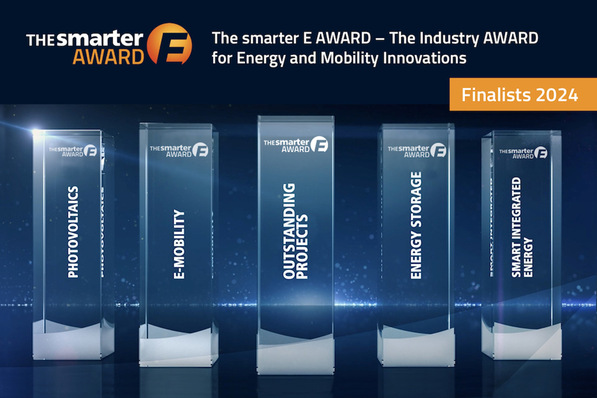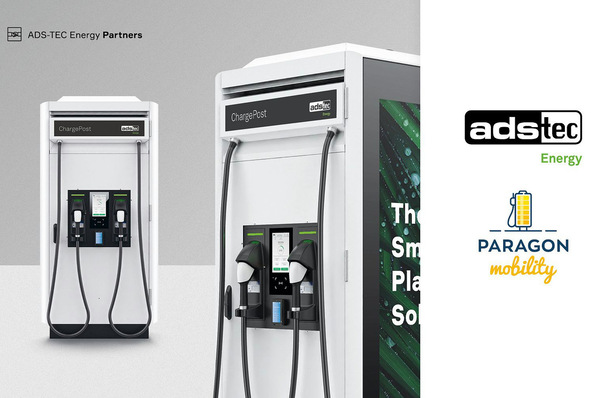The number of electric cars worldwide had risen to 5.6 million in early 2019, up 64 percent from previous year. This is the second year running to see such accelerated growth. China and the USA, the biggest markets, are propelling this steep growth. China remains the undisputed global leader with a total of 2.6 million e-cars. It is followed by the USA with 1.1 million e-cars. Just short of 142,000 electric vehicles are now rolling on Germany’s roads. The new figures are sourced from a recent survey conducted by the Centre for Solar Energy and Hydrogen Research Baden-Württemberg (ZSW). According to its scientists, Tesla accounts for the largest number of newly registered vehicles, nearly 234,000, followed by the Chinese brands BYD and BAIC. The most successful German manufacturer was BMW, taking sixth place with close to 87,000 electric cars, followed by VW in ninth place.
It was a record-setting year for first-time registrations with more than 2.2 million registered worldwide in 2018, a remarkable 75 percent increase. This growth spurt also carried over from the previous year. “The German automotive industry should bring cell manufacturing capabilities of its own to this multi-billion-euro market. This way, it could secure batteries’ high share of value-add in electric cars and be less dependent on offshore supplies," says Prof. Frithjof Staiß, Managing Director of the ZSW.
Top-ranked China doubles its fleet, USA at no. 2
Electric mobility is developing very dynamically in many countries, and particularly so in China. It is the leader in terms of both the total vehicle count and new registrations with 2,610,000 e-cars motoring on the country’s roads. The fleet practically doubled last year with 1,256,000 new registrations. The USA is once again in second place with 1,102,450 e-cars, including the 361,310 cars newly registered in 2018. Norway took third place with 86,340 new registrations in 2018, bringing its total to 298,210 electric automobiles. Every other new passenger car – or more accurately, 51 percent – in Norway is electrically powered, a figure unrivalled anywhere in the world. By comparison, the share of electric cars in all new registrations is around five percent in China, and just two in the USA.
The number of e-vehicles in Germany increased to 141,690 with 67,504 newly registered cars, taking eighth place worldwide in total registrations and fourth for new registrations.
However, the growth rate slowed in 2018 to around 13,000 more newly registered vehicles than in 2017. The figures looked better in the previous year with the year-on-year count rising by some 29,300 cars from 2016 to 2017.” E-car’s share in all new registrations remains small at less than two percent. Staiß has some advice for policymakers. He believes they need to step up the incentives to strengthen the domestic market, which is important to German automakers, and do more in the transportation sector to achieve climate protection targets. “As part of this, they should also consider introducing a carbon price component for fuels so electricity becomes a more attractive alternative than conventional fuels in transportation,” adds Staiß.
German automakers keep pace
The ZSW’s scientists found that Tesla accounted for most new registrations with nearly 233,760 automobiles. This manufacturer was followed by BYD (Build Your Dreams) with 215,800 cars and BAIC (Beijing Automotive Industry Holding) with around 160,790. It should be noted that the latter offers its models almost exclusively in China, while Tesla sells worldwide. BMW was the most successful German manufacturer, with 86,940 electric cars earning it a sixth-place ranking. VW is ninth with 53,720 newly registered e-cars.
In terms of cumulative new registrations, BYD is the most successful brand with 517,230 registered models, closely followed by Tesla with 500,390. The best-placing German automaker is BMW, which came in fifth mainly by selling plug-in hybrids and the i3. A total of 251,870 electric cars made by the Bavarian manufacturer were registered. VW is in seventh place.
In terms of models sold in 2017, Tesla's Model 3 was the most successful with 146,310 new registrations worldwide, a noteworthy showing given that it has only been on the market since late 2017. It was followed by the BAIC EC-Series model with 90,640 and the Nissan Leaf with 81,140. The best-selling German model was the BMW 5 Series with 29,040 plug-in hybrids sold, which put it in 22nd place.
The most successful model to date is still the Nissan Leaf with 363,940 registrations, followed by the Tesla Model S with 243,200. The all-time best-selling German model is the BMW i3, which came in tenth with 108,560 registrations.
The baseline – vehicles recharged with electrical power
ZSW’s scientists counted only those passenger cars and light commercial vehicles with battery-powered electric drives, range extenders and plug-in hybrids; that is, all vehicles that are charged with electrical power. They did not count full and mild hybrids and vehicles equipped with fuel cell technology. There so few of the latter on the road that reliable statistics have yet to be available. This assessment is based on data from the German Federal Motor Transport Authority, government agencies and NGOs abroad, and other sources. (HCN)
Stay informed, get our free newsletter twice a week. Register here
More useful information:
https://www.pveurope.eu/News/E-Mobility/Electric-car-produced-with-PV-and-wind-power
https://www.pveurope.eu/News/Planning-Operation/Solar-advice-Switch-to-e-mobility
https://www.pveurope.eu/News/E-Mobility/55-percent-growth-for-electric-cars







